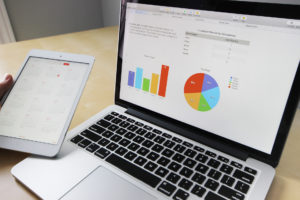
Updating your accounting processes and converting to cloud accounting can make a dramatic impact on your business. It is not uncommon to achieve a 100% – 300% ROI in the first two years of upgrading. This is a result of reducing the transaction level work your bookkeeper or accountant is already completing.
The “Cloud” Is Defined Differently By Each Software Vendor
Just because a marketer puts the word “cloud” in front of a software package does not mean it will give you these results. A thorough understanding of exactly what you need will aid in the vetting of the software.
Do Your Research and Achieve A High ROI on Your Conversion
Choose a software provider that meets your needs. While the price is one consideration, make sure you understand the value being offered. Just because it has the catchy word “cloud” in front of it does not mean that is what you are looking for. Cloud accounting means many things to many companies. The following are three examples currently being sold as cloud accounting.
Three Common Cloud Options
1. The Remote Login Cloud
This version of the cloud is hosted on someone else’s computer. Generally, when you install this software, the company has you download and install software to a local computer from which you log in. When you log in to the software, it appears just like you are on someone else’s desktop computer. This other computer is in a remote location and it allows the software to be physically installed and licensed on that computer. While the backup of the data is now your cloud host’s problem, a package like this won’t give you the options you are looking for.
2. A Browser-Based Login without API
Another cloud option is the software is a browser-based option, meaning it can be accessed anywhere by using most internet browsers. This is one step closer to what you want. The program is accessed via a username and password directly through the website. The software can then be used from anywhere ideally by multiple users allowing for flexibility and location independence.
Again, while this option is closer to what you want, it may not give you a high ROI on your software conversion. Often this software does not allow an integration to the hundreds of accounting applications available.
When researching a software, ask whether it has open Application Programming Interface (API). APIs are the backbone of much of the automation on the internet allowing the different apps to “talk” with your software. Frequently, software that is accessible via a browser and uses the word “cloud”, does not support open APIs and therefore will not move your company dramatically forward.
3. The Promised Land
A third option is a cloud-based software that is accessible via a browser with an open API supporting the applications that will increase your productivity. While there are many accounting software packages claiming to be cloud-based, there are far fewer options that meet these criteria. However few there may be, these are the software packages that are growing most rapidly.
The immense value offered to the user is driving rapid growth. An open API cloud-based software package can be accessed by over 600 applications. These applications range from payroll, accounts payable, accounts receivable, collections, CRM and many more. Much like the smartphone, these apps easily integrate on the platform and reduce time to complete tasks.
Call Your Accountant Before You Jump
While the temptation to switch software can be enticing, choosing a software package will involve more than your business. With the explosion of accounting software options, each with a learning curve, many accountants are choosing the software they support.
If your accountant does not know how to achieve efficient results from your new accounting software, the conversion is going to be a waste of time and energy.
All of this is essential to know before you make the switch, so consider who will help you run the software once you convert your files.
The opposite method is true as well, if you know who you want to work with, ask them which software they use. The learning curve is not too steep if you have a great relationship with a trusted advisor. The objective for both accountant and client should be a long-term mutually enriching relationship.
“If you wish to converse with me, define your terms.”
The cloud is a great marketing word to sell software. It is true that the right solution can transform your company’s back office and pay for itself many times over. Before you commit the time and energy to switch, make sure you know what they mean by “cloud” and who will help you drive it once you change.
Are you considering cloud-based accounting software?
What questions do you have as you consider the time and resource investments required to upgrade?
